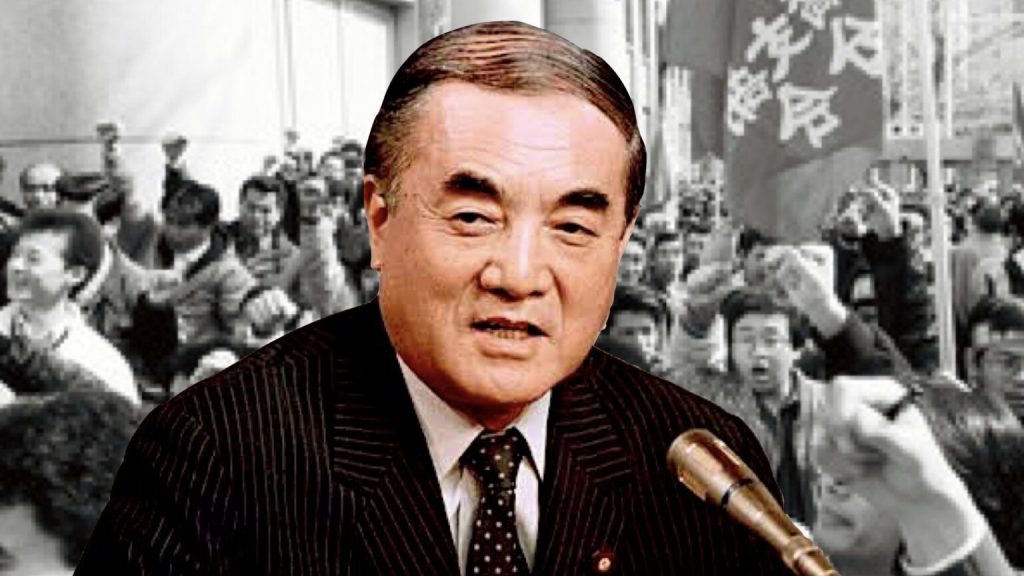On Friday 30th July 2021, members of Tozen held a candle-lit online protest calling for the cancellation of the Tokyo Olympics.
On Friday 30th July 2021, members of Tozen held a candle-lit online protest calling for the cancellation of the Tokyo Olympics.

As a labour union we fight for workers’ rights, and worker safety. And the Tokyo Olympics has had numerous counts of worker deaths and injuries, and workers have reported a “culture of fear” that discouraged them from making complaints about working conditions.
Another major reason that we do not support the Olympics is that the world is currently in the midst of a global pandemic. Corona cases in Japan have been constantly rising and dropping, and with no large-scale vaccination in sight, going ahead with the olympics would be an unnecessary risk to all.
Other reasons that we oppose the Tokyo Olympics are:
Tozen, and our President Okunuki Hifumi, have been mentioned in the following article by Mieko Takenobu about the difficulties that Filipino domestic workers have.
竹信三恵子氏のフィリピン人家事労働者が抱える問題についての記事の中で、東ゼン労組と執行委員長の奥貫妃文についても触れていただきました。

SNA (Tokyo) — Last Friday, the Covid-19 global pandemic passed the horrifying milestone of one million infections and 50,000 fatalities worldwide. There have, as of this writing, been 4,592 confirmed cases and 106 deaths in Japan. Graphs of new cases and deaths trace the left half of steep parabolas as the world’s nations fail to flatten the curve. The global catastrophe and its grim toll traps workers between the closing jaws of infection risk and dire economic straits. As US commentator Krystal Ball noted, “the working class has been shoved into the front lines of this crisis.”

SNA (Tokyo) — When did poverty become normal? Conventional wisdom had it that poverty didn’t exist in Japan; that the miracle recovery during the country’s rapid growth period had given birth to a middle class of 100 million people.
中曽根康弘元首相が2019年11月29日、101歳で亡くなった。1971年生まれの筆者にとって、中曽根氏は良くも悪くも鮮明に記憶に残る総理大臣の一人である。日本の戦後の総理大臣は概して「調整役」的存在に徹し、カリスマ性が求められてこなかったなか、中曽根氏はもしかしたら、初めてカリスマを志向した総理大臣だったかもしれない。“ロン・ヤス関係”と呼ばれた、アメリカのレーガン元大統領との“日米蜜月関係”の構築は、日本の「対米従属化」をいっそう加速させたといえるかもしれない。だが、当時中学生~高校生の子どもだった筆者の目には、初めて日本の首相が、アメリカと“対等に”そして“フレンドリーに”交渉する姿を見た気がした。それは単純に、彼の身長が178センチとこれまでの総理大臣の中では群を抜いて高く、アメリカ大統領と並んだときに引けをとらなかったという視覚的な印象もあるだろう。

SNA (Tokyo) — Prime Minister Yasuhiro Nakasone died this past November 29. During his tenure as prime minister from 1982 to 1987, he had deepened Japan’s subordination to the US hegemon through his Ron-Yasu Bromance with President Ronald Reagan. But to one middle and high schooler in the 1980s, he seemed to be the first prime minister to hold his own in friendly talks with the United States, almost as an equal.
The year 2016 was no walk in the park for workers nationwide. At one extreme, we have Matsuri Takahashi, a 24-year-old worker who felt she had no other choice but to take her life as a result of overwork.
In October, the Ministry of Health, Labor and Welfare released its first ever white paper on karōshi (death from overwork). The fact that the ministry can publish such a paper is a chilling reminder of the cruelty of the country’s workplace environment.
On May 4, a tiny cafe in Tokyo’s Koenji neighborhood was transformed into an informal meeting hall. Porn-film kingpins (and a “queenpin”) had called an “emergency meeting” to respond to a recently released report by Human Rights Now (HRN).
On March 3, the international NGO, which is based in Tokyo and has U.N. special consultative status, reported the results of an in-depth investigation into the pornography business in Japan. The report concluded that the industry had violated the human rights of women and girls through means such as blackmail, virtual enslavement and seeking illegal breach-of-contract damages from women who try to back out of films after being persuaded or duped into acting in them.